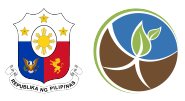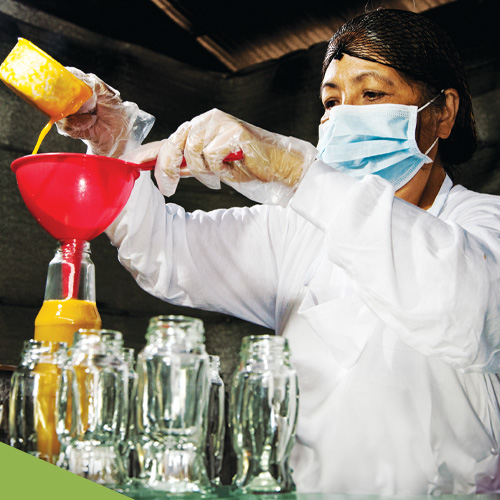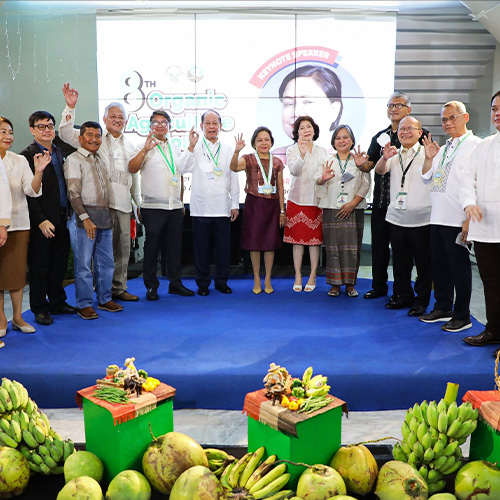NOAP CORE SERVICES
-
Organic Agriculture Livelihood Project
The OALP acts as a business integrator for organic farms and businesses. The facilities and components of each OALP, including its scales of operation and phases of development, are based on the organic agriculture commodities of the proponent.
Read more -
Participatory Guarantee System
A top priority of the Program, the Participatory Guarantee System (PGS) refers to a locally-focused quality assurance system which is developed and practiced by people actually engaged in organic agriculture. It is built on a foundation of trust, social network, and knowledge exchange. It is used to certify producers and farmers as actual and active practitioners of organic agriculture. The PGS certification are supported by incentives, trainings, and mentoring.
Read more -
Capacity Development
Capacity development for groups of OA farmers and fisherfolk covers the following aspects:
- OA technologies
- Organizational development
- Process of OA certification and accreditation
- Business operation
-
Research for Development and Extension
The goal of the NOAP’s research for development and extension (RDE) programs is to develop, enhance, support, and consolidate related technologies and activities for the formulation and implementation of a unified and integrated organic agriculture RDE plans and programs from the national level to the field level.
Read more -
Youth Scholarship (Internship) Grant on Organic Farming
The Youth Scholarship (Internship) Grant on Organic Farming is a highly specialized internship program available to young people nationwide between 18 to 35 years old. It provides the trainees with funding for start-up projects, rigorous and comprehensive hands-on training on farms, and mentorship during the implementation of their entrepreneurship projects. Its goal is to instill in the trainees the respect for and a desire to work in organic agriculture and have it as a source of income.
Read more -
Establishment of Seed Centers
To ensure that organic seeds and planting materials are made accessible and available to organic practitioners, LGUs are encouraged and will receive assistance in establishing local organic seed centers.
Read more -
Marketing Assistance
For farmers and fisherfolk involved in organic agriculture (OA), the NOAP develops and implements market development assistance in partnership with the DA - Agribusiness and Marketing Assistance Service (DA-AMAS). Marketing support includes the conduct of trade shows, market linkage, consumer awareness, digital marketing, promotion of the PGS and Organic Marks, and strengthening of organic trading posts (OTPs) among others.
Read more -
Social Credit
The National Organic Agriculture Program, in partnership with the Agriculture Credit Policy Council (ACPC), implements socialized credit programs to provide financial support services to organic agriculture practitioners in order to address the need for capitalization during the start-up or expansion of their enterpises.
Read more -
Policy Development
To be responsive to the needs of the industry, the National Organic Agriculture Board (NOAB) composed of multi-sectoral representation, was created as the policy-making body for the Program. It shall provide direction and general guidelines for the NOAP. The National Organic Agriculture Program - National Program Coordinating Office (NOAP-NPCO) shall serve as the planning and administrative secretariat of the NOAB, and as the coordinating office of the Program.
Read more -
Advocacy & Promotion
The key mandate of the Program is to promote, propagate, develop further, and implement the practice of organic agriculture in the Philippines. This is being done through various platforms such as congresses and summits, celebrations of the OA Month, quad media, IEC materials, and information caravans.
Read more










